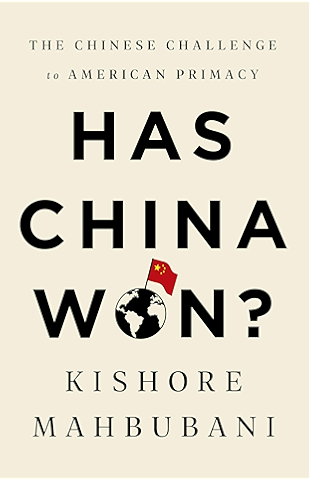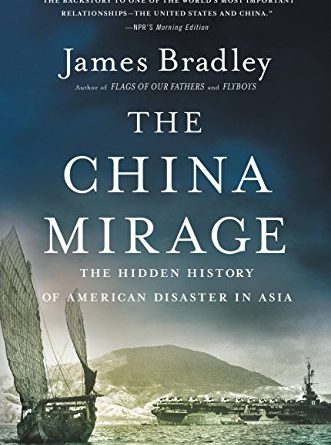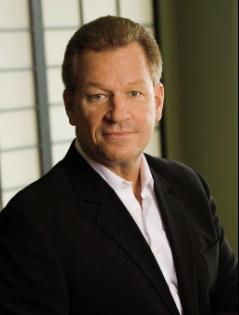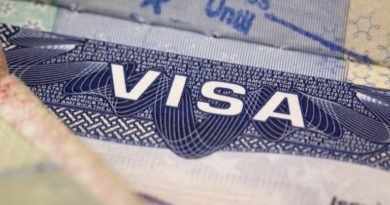The China Mirage by James Bradley
The Hidden History of American Disaster in Asia


Memento MaximaDigital Mktg.
@ [email protected]
RESERVE ADVERTISEMENT
.
Customers who viewed this item also viewed

-
The Imperial Cruise: A Secret History of Empire and WarKindle Edition
-
 Has China Won?: The Chinese Challenge to American PrimacyKindle Edition
Has China Won?: The Chinese Challenge to American PrimacyKindle Edition


Memento MaximaDigital Mktg.
@ [email protected]
RESERVE ADVERTISEMENT
.
Editorial Reviews
About the Author
Review
Bradley argues that a better understanding of China could have helped America to avoid war with Japan in 1941 and subsequent wars in Korea and Vietnam. Verdict: A superlative read that is highly recommended to experts and novices alike.
— “Library Journal (starred review)”
Bradley…argues that this positive, pre-WWII view of China was false and led the US into several policy errors, including the needless provocation of Japan… Bradley’s work is insightful and entertaining.
— “Publishers Weekly”
Bradley’s narrative talents and the central importance of Asian relations combine to make The China Mirage as riveting as it is significant.
— “Barnes&Noble.com”
Pete Larkin offers a solid narration of this examination of US foreign policy on China. His tone is often engaging and sometimes conversational but always clear and easy to follow, even when navigating sentences with Chinese names…The book is enlightening and translates fairly well to audio.
— “AudioFile”
Uncovers the nineteenth-century plan to create a ‘New China’ and ‘Americanize Asia’…In this relentless critique of wrongheaded thinking by government officials who did not speak the Asian languages and had little hands-on experience, Bradley focuses especially on the foreign policy of the two Roosevelts…Bradley delivers a strenuous expose about the initial building of the ‘rickety bridge of fellowship crossing the Pacific.’
— “Kirkus Reviews”


Memento MaximaDigital Mktg.
@ [email protected]
RESERVE ADVERTISEMENT
.
Product details
|


Memento MaximaDigital Mktg.
@ [email protected]
RESERVE ADVERTISEMENT
.


Memento MaximaDigital Mktg.
@ [email protected]
RESERVE ADVERTISEMENT
.
Reviewed in the United States on March 12, 2017
Mr. Bradley shed light on aspects of American involvement in Asia and particularly China from American perspective that I knew something about but not to the degree which he described. For that I am very grateful. America’s continuing interference in China is today’s greatest challenge between China and America. As a Chinese-American I am concerned. In the days of Roosevelts the attempt was both to Christianize and Americanize China as Mr. Bradley said. Even today America accuses China of religious persecution stating that Christians are forced to practice their religion underground. China is not a Christian nation. It has its own religion which is a combination of Buddhism, Confucian philosophy and ancestral worship. The history of Christian involvement in China coinciding with military invasion is still too raw in China.
It does not surprise me that FDR’s maternal grandfather Warren Delano made his fortune not just trading tea and porcelain but mostly in opium. He left FDR’s mother a fortune equivalent in value to a billion in today’s term. You could say he was the El Chapo of his days. But the Brits were far worse. They invaded China twice in the so called Opium Wars.
One thing I gave FDR credit was, unlike the racist Churchill, he wanted China to be one of the major powers after WWII. Churchill and other European countries wanted to regain their former colonies and continue to enslave Asians. While Korea gained its independence from Japan it was immediately divided by big powers to this day. Philippines did not gain its independence until 1946 with a series of puppets. Malaya was not freed until 1957. And Hong Kong was only returned to China in 1997. France which collaborated with the Japanese tried to overthrow the Democratic Republic of Vietnam. Its first president Ho Chi Minh was supported by OSS when he was fighting the Japanese. France then installed another puppet and ultimately led to the costly Vietnam War.
A few complaints: The author should correct the fact that Charlie Soong actually had three daughters and three sons, not one. I should know as I worked with T.V. Soong’s son in law. This is a minor point. What is more troublesome is his mistake stating that the Japanese sneak attack on the Russian Pacific Fleet took place in Korea. It was at Port Arthur, in present day Dalian, in China. Russians and Japanese fought on Chinese land with Chinese civilians suffered the consequences.


Memento MaximaDigital Mktg.
@ [email protected]
RESERVE ADVERTISEMENT
.


Memento MaximaDigital Mktg.
@ [email protected]
RESERVE ADVERTISEMENT
.
Reviewed in the United States on August 19, 2018
This book adds some very valuable perspective. My father was not overly religious, but like many of the Greatest Generation, he was taken in by Life Magazine and thought highly of Chiang Kai-Shek, whom publisher Henry Luce apparently went out of his way to portray as the pro-Western Christian good guy.
With Imperial Cruise, Bradley described America’s early dealings with Japan from Commodore Perry through TR’s handing over Korea (in exchange for their staying out of the Philippines). Mirage starts with the opium trade that made the Roosevelts rich to start with. It then shows how U.S.-educated Chinese powerplayers, over decades, learned to leverage overseas support from wishful evangelicals to build their power base. When the interwar years interrupt Chiang’s losing battle with Mao Tse Tung, we see a full court press by Chiang, Madame Kai-Shek, and allies in Washington and New York to steer the U.S. into fighting Japan for them.
I don’t fully agree with Bradley’s premise that we could have avoided the Pacific War, unless one imagines us not building up the Japanese empire with U.S. steel and oil in the first place. And once re-elected, FDR was willing to go further to support the Nationalists, at least to buy time if nothing else.
But as today’s generations have seen, from Gulf War II to Trump, not everyone in D.C. follows the president’s playbook. Some under FDR agreed with him that a total embargo of Japan risked war; others did not. With cunning, and thanks to the chief being away at the wrong time, the latter camp (chiefly Stimson, ultimately Dean Acheson) conducted their own foreign policy and at least managed to speed history up. This is perhaps Bradley’s greatest contribution.
I agree that he sounds too sympathetic to the clever Mao, whom he admits could be as barbaric with his own people as Chiang. An informal, often snarky tone doesn’t help him from coming across as overly liberal. Through three books though, I’ve found the revelations worth Bradley’s take on things. His is not the final historical word, but it’s mostly a positive addition to the puzzle.


Memento MaximaDigital Mktg.
@ [email protected]
RESERVE ADVERTISEMENT
.


Memento MaximaDigital Mktg.
@ [email protected]
RESERVE ADVERTISEMENT
.
Reviewed in the United States on January 1, 2017
James Bradley has written one of the most compelling stories of history that makes one rethink the entire approach of the U.S. foreign policy toward Asia since the days of the Opium Wars. He convincingly, although I’m sure controversially to many, describes how for decades we favored the Japanese over the Chinese, supported corruption for years in China and then by the decisions of a few of the “wisest” men in government and while FDR was out of the country, changed foreign policy toward Japan that may have led to the attack on Pearl Harbor. He continues the history through how we fought in Korea and how it could have been avoided to how we got into Viet Nam, again a conflict that was unnecessary. If he did not support every statement in great detail, one could easily read this book as one great conspiracy theory, but it is difficult to refute the history that he explores. If you have any interest in history and current events and want to have a much better understanding of how our relationship with China and Southeast Asia developed and how it could have been much different, I would strongly encourage you to read this book.
Bradley is a good writer and this is by no means a dry read but if I were the editor there are sections of the book I would have shortened and others could have been expanded. This is one book where I did not want it to end. There is so much to tell and I hope Mr. Bradley will write a sequel to bring us up to today. As I write, we are in the transition period of a new administration which could have profound effects on our foreign policy. Without understanding where we have been and the mistakes we have made as a country in our policies toward Southeast Asia, it is unlikely that our new relationships with this important area of the world will be anything but destructive and lead to further hostility and economic strife.
Top international reviews


Memento MaximaDigital Mktg.
@ [email protected]
RESERVE ADVERTISEMENT
.
Reviewed in the United Kingdom on August 7, 2015


Memento MaximaDigital Mktg.
@ [email protected]
RESERVE ADVERTISEMENT
.
Reviewed in the United Kingdom on December 3, 2018


Memento MaximaDigital Mktg.
@ [email protected]
RESERVE ADVERTISEMENT
.
Reviewed in the United Kingdom on April 6, 2017
unbelievable account of US attitudes to the Far East ,dating from the 19th century till today….an incredible lesson in ARROGANCE and
IGNORANCE and definately how NOT to run a country…


Memento MaximaDigital Mktg.
@ [email protected]
RESERVE ADVERTISEMENT
.
Reviewed in the United Kingdom on January 28, 2017


Memento MaximaDigital Mktg.
@ [email protected]
RESERVE ADVERTISEMENT
.
Reviewed in the United Kingdom on April 26, 2018
This book tells the story of how ignorance and lack of understanding of other countries culture can lead to disasterous foreign policy decisions,a fascinating read.


SIGN UP TO RECEIVE OUR EMAILThe most important news of the day about the ASEAN Countries and the world in one email: [email protected]
.













Comment Report abuse